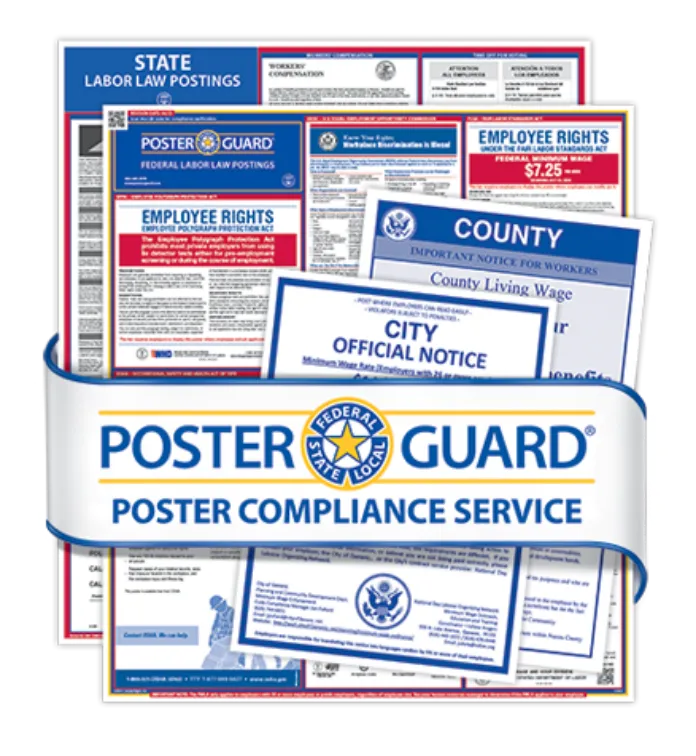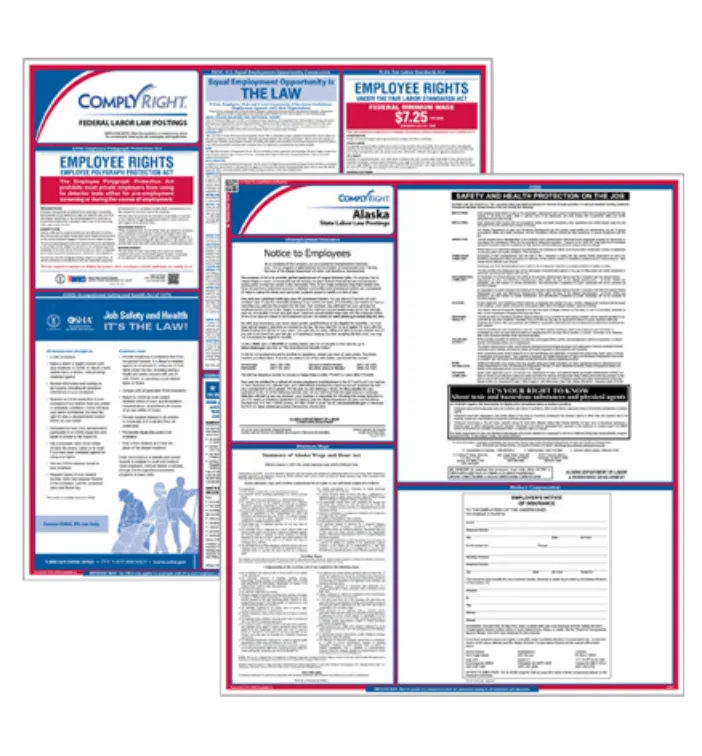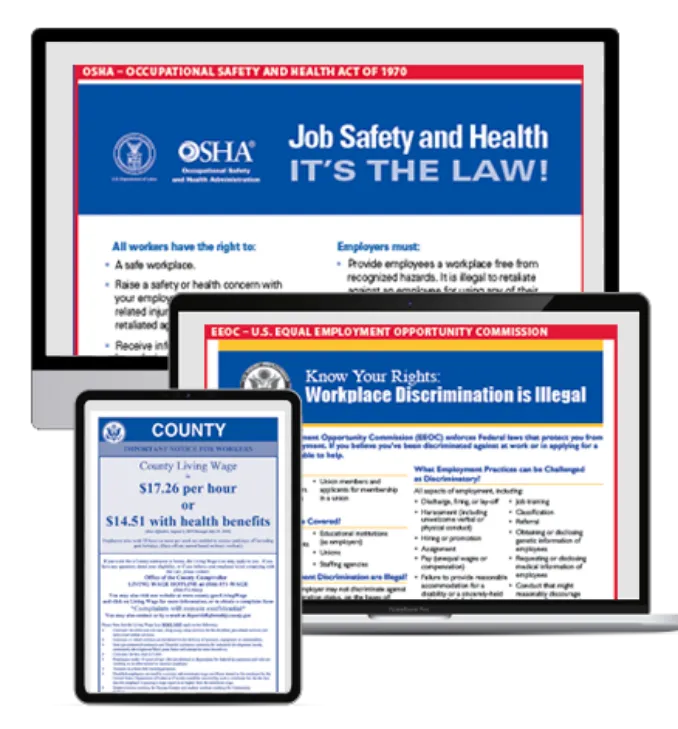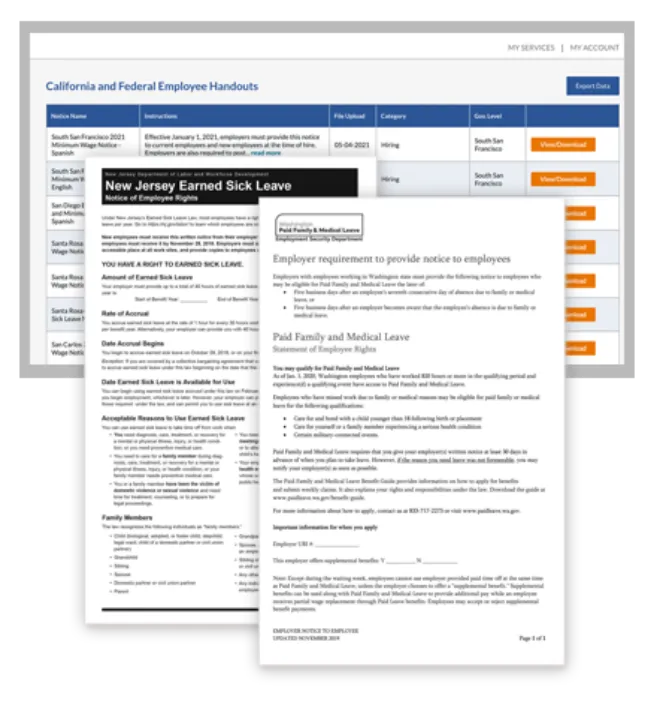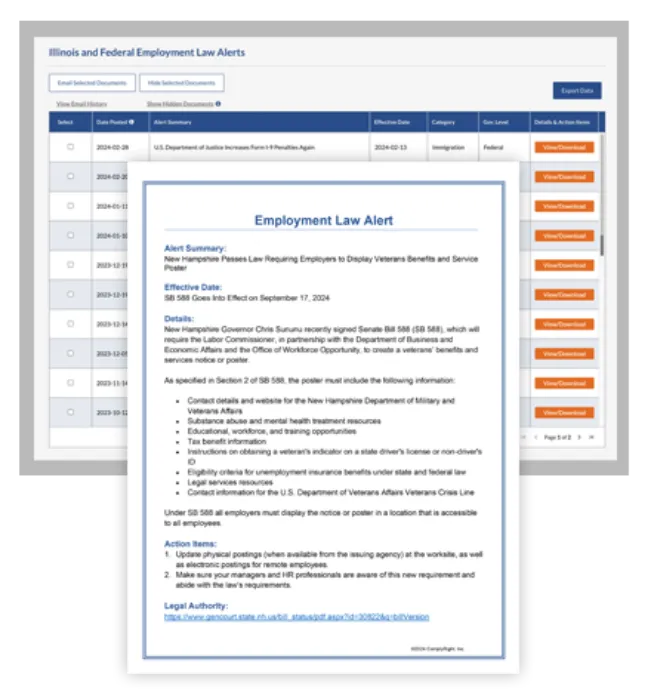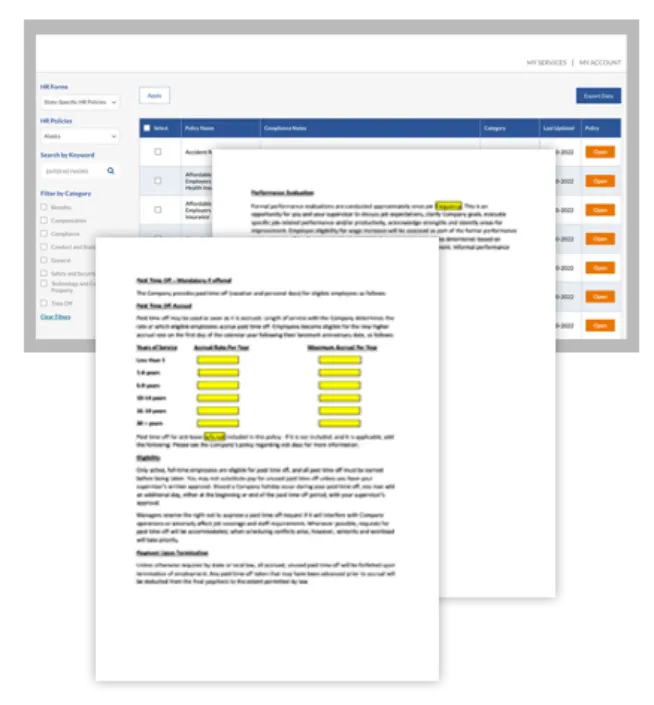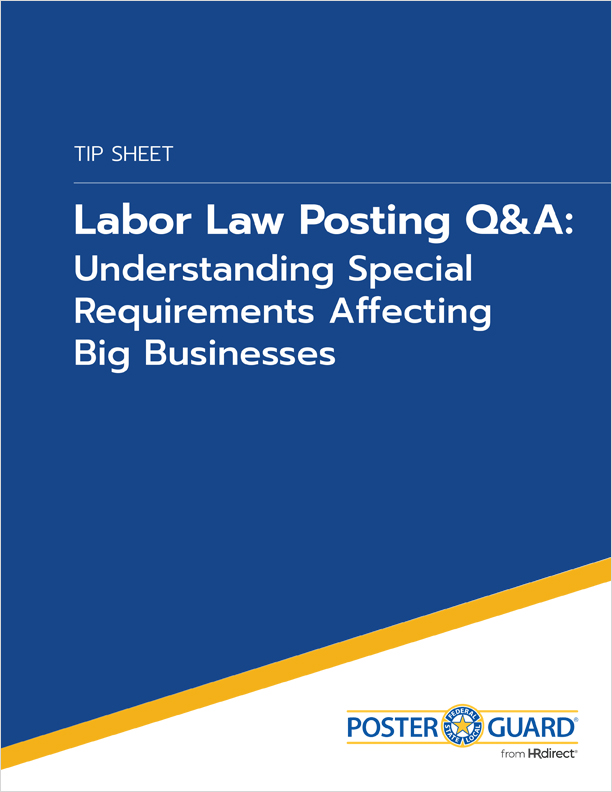Are we required to display posters if we only have a few employees?
Can’t we get posters for free from government websites?
Is it OK to update posters just once a year?
Our city/county has a minimum wage that is higher than the state and federal minimum wages. Do we have to post federal and state posters minimum wage posters also?
Can we display posters in a single location at our facility, or do they need to appear in multiple places in the building?
Posters take up too much room on our walls. Can we post them electronically on our company intranet instead?
Do we need to issue posters to employees who work from home?
What about remote workers who come into the office a few times a year and see our postings? Are they covered?
We have employees who work in trucks or kiosks without walls. How do we satisfy posting compliance requirements for these employees?
Consider an electronic solution or a binder format. Electronic postings are ideal for employees with computers and internet access, while a binder format provides physical postings for other types of working environments.
What if we have employees who work at a client’s worksite? Who is responsible for the posters?
Are we obligated to post in Spanish and other foreign languages?
As a federal contractor, do we have to display the federal contractor labor law postings at every worksite?
What are the posting requirements for job applicants, and how do we handle them for in-person vs. online hiring?
Certain postings must be displayed where applicants can view them. At the federal level, these include EEOC, FMLA, USERRA and EPPA postings, plus the E-Verify/Right to Work posting where applicable. Many states, counties and cities also have applicant posting requirements. For applicants that come into your facility for pre-employment interviews, testing or other hiring procedures, you should display physical postings. For online applicants, you can provide electronic access via links to poster images.
There’s no such thing as “poster police,” so what are the chances of getting in trouble for not having the right posters?
While it’s not likely that government agents will knock on your door to check postings, they may visit for other reasons. At the federal level, most posting fines are assessed when agencies conduct an I-9 audit, an OSHA inspection, an EEOC investigation or even a DOL follow-up to an employee complaint. While on the premises for these reasons, agents will check posting compliance and issue fines if your postings are incomplete or outdated. On the state and local level, employers may be subjected to random government audits resulting in posting fines.
The bigger risk of non-compliance is related to employee lawsuits. In these cases, posting violations can result in higher damage awards against you, or cause you to forfeit important legal defenses. Missing or outdated postings can also extend the statute of limitations for employment lawsuits.
Which state posters do you provide if a remote worker lives in another state?
The answer depends on a lot of factors, including the state and local laws where your business is headquartered and where the employee lives, the structure of your business, tax issues, the legal relationship with the specific employee, company policies and applicable agreements. The safest practice is to provide posters from both states but at minimum you should provide posters from the state where the employee lives and works.
Can a company provide a handout instead of a poster?
No. Employee 'handouts' are completely different, and typically refer to legal notices employers must personally distribute to employees at various points in the employment relationship, such as: upon hire, on employee anniversaries, when there are pay status changes, when an employee becomes pregnant, when an employee becomes injured or requests a leave of absence, and upon termination.
Each state and locality has different requirements. For the most part, these ‘handout’ requirements are separate and apart from workplace posting requirements. There are a few overlapping notices, but as a general rule the handout notices are separate and must be distributed in addition to the workplace posters. Each handout requirement is unique when it comes to the distribution method, but in most cases electronic delivery is acceptable.
Can we shrink the posters?
Posters must satisfy minimum size and font requirements, along with strict color and/or layout specifications. Cutting corners by shrinking posters or not printing in color can put your company at risk for non-compliance.
Do certain industries have additional posting requirements?
Certain industries, such as healthcare facilities, restaurant establishments and public sector employers, have additional labor law posting requirements under federal and state laws. They are a commonly overlooked area of compliance, but they must be addressed to ensure your business is fully protected.
Can E-Verify Posters be downloaded or linked electronically to external web sites?
E-Verify posters can be displayed by enrolled employers only. E-Verify requires its participants to display the E-Verify Participation and Right to Work posters in prominent locations clearly visible to prospective employees and all employees, including those hired to work in a remote setting. This can include displaying the posters digitally, online, in hard copy at physical locations, and providing a copy of the posters with job application materials. Electronically linking official (non-sample) E-Verify posters to external web sites is not permitted.
What types of penalties can employers face for non-compliance with E-Verify requirements?
Some states impose penalties for noncompliance, which can include fines and other sanctions. Federal contractors who fail to comply with e-verify requirements may lose eligibility for federal contracts. The USCIS can also terminate an employer’s participation in E-Verify for misuse.
Do certain state posters require employers to fill in company information?
Yes. Some posters require information from employers. Some common posters that may require employer input are:
- Workers' Compensation Notices: Often require the name of the insurance carrier or self-insured status
- Unemployment Insurance Posters: May ask for employer account numbers or contact details
- Emergency Contact Posters: Typically require employers to fill in local emergency numbers or internal safety contacts
- Payday Notices: Some states require employers to specify regular payday schedules
- Employee Assistance Program (EAP): If applicable, employers may need to include provider contact info
Why do I have to request certain posters if I am enrolled in a posting service?
There are certain posters that agencies will only release with employer-specific information, and generic versions are not available to third-party poster providers. These posters are typically unemployment insurance and workers’ compensation posters. For these posters, the agencies typically require the employer to provide specific information to the state about their company such as their employer tax ID or provide proof of workers’ compensation insurance before providing a poster.
Do you recommend keeping old posters when they are replaced?
Employers are not required to keep old posters. Poster Guard maintains all purchasing records for 5 years to support customers in litigation (showing what addresses were covered and what services they had for each location). If you would like to maintain additional proof of compliance, you can take photos of the posting stations each time you make an update and date/time stamp the photo.
Is there a federal requirement for businesses to put up a Drug-Free Workplace poster?
No. There is no such federal requirement. However, some businesses that receive contracts or grants from the federal government use posters to help fulfill some of the requirements under the Drug-Free Workplace Act of 1988.

